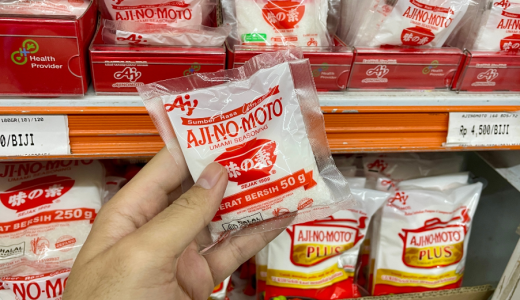Experts Reveal: The Shocking Truth About MSG and Its Impact on Your Food's Flavor!
By
Gian T
- Replies 7
Monosodium glutamate, or MSG as it's commonly known, has been a staple in the culinary world for enhancing the flavour of various dishes. However, its use has been accompanied by a cloud of controversy and misunderstanding. Here at the Seniors Discount Club, we understand that our members are keen on maintaining a healthy diet without compromising on taste, so let's dive into the world of MSG and separate fact from fiction.
MSG has been a part of the global food industry for over a century, but its reputation has been marred by misconceptions and unfounded health concerns. The term 'Chinese Restaurant Syndrome' emerged in the late 1960s, casting a shadow over MSG's safety and unfairly stigmatising Asian cuisine. This term has since been recognised as outdated and offensive, and the scientific community has largely debunked the myth that MSG is the culprit behind the symptoms some individuals experience after eating foods containing the additive.
So, what exactly is MSG? It's a flavour enhancer that brings out the umami taste in food – that savoury, meaty flavour that makes your mouth water. Discovered by Japanese scientist Kikunae Ikeda in 1908, MSG is produced through the fermentation of starch, corn sugar, or molasses. It's found in many processed foods, from snacks to seasonings, and even occurs naturally in foods like tomatoes and mushrooms.
When it comes to how MSG interacts with our bodies, it's all about the taste receptors. MSG binds to umami receptors on our tongue, enhancing the overall flavour experience. While a small number of people may have a sensitivity to MSG, leading to temporary discomfort, the vast majority of us can enjoy MSG-laden foods without any adverse effects.
The safety of MSG has been confirmed by numerous studies and food safety authorities, including Food Standards Australia New Zealand. It's important to remember that moderation is key in any diet, and while MSG is safe, excessive consumption of any additive is not advisable.
One concern that often arises with MSG is its sodium content. While it's true that MSG contributes to our sodium intake, it contains about one-third less sodium than table salt. In the quest for a healthier diet, some experts suggest using MSG as a partial replacement for salt to lower sodium consumption. Even better, consider potassium-enriched salt, which not only has less sodium but also provides the health benefits of potassium, a mineral known to reduce blood pressure and cardiovascular risk.
For our members who love to cook, MSG can be a secret weapon in the kitchen. A sprinkle of MSG can elevate the taste of healthful dishes, making it easier to enjoy vegetables and grains. It's a way to indulge in delicious meals without relying on high-sugar, high-calorie, or high-fat ingredients.
In conclusion, MSG is not the villain it's been made out to be. It's a flavour enhancer that, when used responsibly, can be part of a balanced and enjoyable diet. So, next time you're experimenting with recipes or reaching for a savoury snack, remember that MSG is just another ingredient that can add depth to your dishes without compromising your health.
 We'd love to hear from you, members! Have you used MSG in your cooking, or do you have any concerns about its use? Share your thoughts and experiences in the comments below, and let's continue to savour the flavours of life together!
We'd love to hear from you, members! Have you used MSG in your cooking, or do you have any concerns about its use? Share your thoughts and experiences in the comments below, and let's continue to savour the flavours of life together!
MSG has been a part of the global food industry for over a century, but its reputation has been marred by misconceptions and unfounded health concerns. The term 'Chinese Restaurant Syndrome' emerged in the late 1960s, casting a shadow over MSG's safety and unfairly stigmatising Asian cuisine. This term has since been recognised as outdated and offensive, and the scientific community has largely debunked the myth that MSG is the culprit behind the symptoms some individuals experience after eating foods containing the additive.
So, what exactly is MSG? It's a flavour enhancer that brings out the umami taste in food – that savoury, meaty flavour that makes your mouth water. Discovered by Japanese scientist Kikunae Ikeda in 1908, MSG is produced through the fermentation of starch, corn sugar, or molasses. It's found in many processed foods, from snacks to seasonings, and even occurs naturally in foods like tomatoes and mushrooms.
When it comes to how MSG interacts with our bodies, it's all about the taste receptors. MSG binds to umami receptors on our tongue, enhancing the overall flavour experience. While a small number of people may have a sensitivity to MSG, leading to temporary discomfort, the vast majority of us can enjoy MSG-laden foods without any adverse effects.
The safety of MSG has been confirmed by numerous studies and food safety authorities, including Food Standards Australia New Zealand. It's important to remember that moderation is key in any diet, and while MSG is safe, excessive consumption of any additive is not advisable.
One concern that often arises with MSG is its sodium content. While it's true that MSG contributes to our sodium intake, it contains about one-third less sodium than table salt. In the quest for a healthier diet, some experts suggest using MSG as a partial replacement for salt to lower sodium consumption. Even better, consider potassium-enriched salt, which not only has less sodium but also provides the health benefits of potassium, a mineral known to reduce blood pressure and cardiovascular risk.
For our members who love to cook, MSG can be a secret weapon in the kitchen. A sprinkle of MSG can elevate the taste of healthful dishes, making it easier to enjoy vegetables and grains. It's a way to indulge in delicious meals without relying on high-sugar, high-calorie, or high-fat ingredients.
In conclusion, MSG is not the villain it's been made out to be. It's a flavour enhancer that, when used responsibly, can be part of a balanced and enjoyable diet. So, next time you're experimenting with recipes or reaching for a savoury snack, remember that MSG is just another ingredient that can add depth to your dishes without compromising your health.
Key Takeaways
- Monosodium glutamate (MSG) is a flavour enhancer commonly found in various processed foods and is produced by fermenting starch, corn sugar, or molasses.
- Historical association of MSG with 'Chinese Restaurant Syndrome' has been discredited; recent studies have not shown a link between MSG consumption and the syndrome, and the term is now outdated and sometimes considered offensive.
- MSG is considered safe for consumption by Food Standards Australia and New Zealand and can be beneficial when used to make healthful foods more palatable.
- While MSG does contribute to sodium intake, it contains less sodium than regular table salt; potassium-enriched salt is suggested as a healthier alternative for home cooking.








